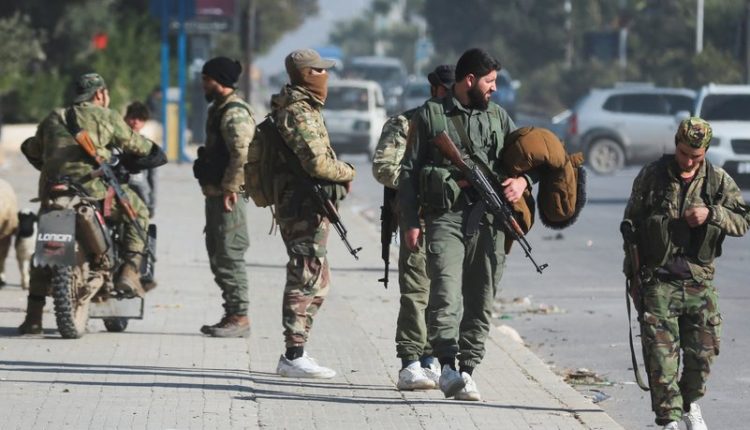By Kardo Roj
HOMS, Syria (North Press) – At least 27 civilians have been killed in the neighborhoods and villages of Homs over the past 48 hours, most of whom are from the Alawite sect, as a result of attacks carried out by factions of the Turkey-backed Syrian National Army (SNA) and armed groups seeking revenge. The violence is part of growing security instability in the region.
The killing spree began following the fall of the Assad regime on Sunday, when opposition forces and Hayat Tahrir al-Sham (HTS) took control of the country’s capital, Damascus, and many of its institutions.
According to a North Press correspondent in Homs, the attacks were carried out by members of the SNA and civilian militias targeting Alawite residents in several neighborhoods, including al-Nazha, al-Zahra, Armen, al-Muhajereen, al-Sabeel, and villages such as Shataiya, Abu Dali, and al-Jabriyah in Homs city. The violence occurred shortly after HTS secured control of the area.
The correspondent added that the region has witnessed an alarming breakdown in security, with the local security apparatus under HTS, namely the General Security Directorate, unable to restore order and enforce the rule of law.
“Promises of safety made by HTS to the religious minorities who had been loyal to the fallen Assad regime have not been implemented,” said the North Press reporter. “There are also large amounts of weapons left behind by the regime’s military, including light and medium weapons, scattered throughout Homs city and its countryside. The authorities have yet to remove them.”
The chaotic situation has created an environment ripe for revenge attacks and lawlessness, which has disproportionately affected civilians, particularly from the Alawite community, a group historically loyal to the Assad regime. The ongoing insecurity in Homs underlines the struggles of the post-Assad period, where new power struggles and tensions between various armed groups are adding to the already volatile situation.

